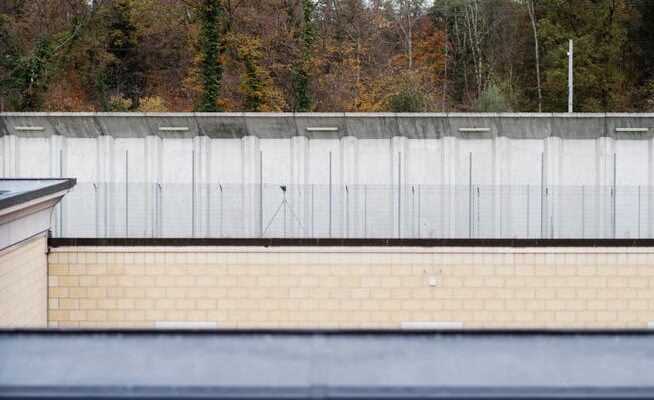Young offender Brian recently received a visit from a United Nations working group. The conclusion of the UN experts makes you sit up and take notice.
After years in solitary confinement: The offender Brian was transferred from the JVA Pöschwies (pictured) to another prison.
In the past few days, a UN working group has traveled through Switzerland to assess the general human rights situation of people of African descent. Possible cases of racism, xenophobia or afrophobia were examined.
Among other things, the delegation visited the Pöschwies prison in Zurich and dealt with the Brian case. The well-known criminal, the son of a Swiss father and a Cameroonian father, was held in solitary confinement there for more than three years. Last week he was transferred to a remand prison in Zurich.
In the case of Brian, the UN experts come to a clear conclusion. In front of the media on Wednesday, they stated that the 26-year-old’s situation was that of a stolen childhood. Racial discrimination and injustice have always been present in Brian’s life.
Severe childhood deprivation
Dominique Day, head of the UN working group, told the NZZ: “Brian’s case is a blatant example of systemic racism.” The 26-year-old had to endure several human rights violations and massive deprivation in his childhood.
Brian was locked up in prison as a child – and had to spend a long time in solitary confinement. At times he was denied contact with his family and access to education. Day sees Brian’s violations of the law as a reaction to the injustice suffered by state institutions, most recently in the form of provocations by prison wardens.

Dominique Day, head of the UN expert group on people of African descent.
Day justifies the accusation of systemic racism by saying that the injustice that has happened to Brian has run through all stages of his life since he was a child. Extremely harsh sentences, years of solitary confinement, all of which strongly indicate racist stereotypes. Day also refers to the concerns expressed by Nils Melzer, the UN Special Rapporteur on Torture. Last year he had already described Brian’s long solitary confinement as inhuman (to the report).
The leader of the working group says: «Brian’s case is difficult to explain without racism. To our knowledge, there is no comparable case of a white-skinned person in Switzerland.”
Day demands Brian’s release
The head of the working group welcomes the fact that the prisoner has now been transferred to a new prison. Nevertheless, she demands that all repressive measures against him be dropped. The young man should be released from custody. He should also be paid financial compensation for the injustice he has experienced. “Brian should be given the chance to learn how to live as an adult. And he should get support, especially from people with an African background.”
